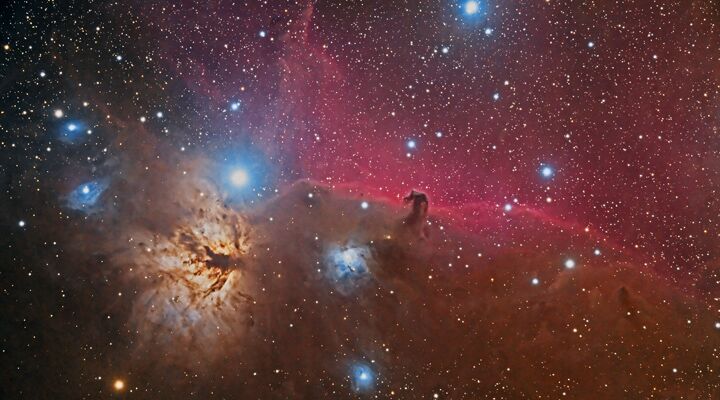
Space Junk Hemming Us In
Space—the final frontier, the dark void above us—may seem empty except for twinkling stars, planets and a few satellites, but man’s exploits above the atmosphere are creating a problem. Orbital debris, or space junk, is a growing threat that could prevent human exploration in the great unknown.
What is space junk? You might envision a derelict satellite, drifting aimlessly through space. However, orbital debris is not only classified as large objects such as satellites, it can be any junk left by man—even a scrap of paint.
nasa tracks junk as small as 2 inches in size. That may seem too miniscule to make a difference in the vast expanse of space, but consider that most pieces in space travel at speeds in excess of 17,500 mph.
Imagine a penny. Now imagine that penny hitting something, anything, at 17,500 mph. If a penny hit a satellite at such speeds, it could potentially cause incredible amounts of damage and send thousands of new pieces of orbital debris out into orbit. As such, some operating technology in space—including the international space station—must, on occasion, change course to avoid these man-made comets. The risk of collision is not only real; it is becoming increasingly more likely.
Since the 1957 launch of the Soviet satellite Sputnik, man has made more and more excursions into space. As space traffic increases, more and more debris finds its way into orbit. Scientists today must consider where every tiny piece of junk is to find a clear path for their satellites to make it safely into orbit.
Satellites and space exploration have progressed so much over the years, becoming cheaper and more accessible, that poorer nations have had the opportunity to launch their own satellites. This leads to the possibility of even more orbital debris, especially in the lower earth orbit where most satellites reside.
The problem has been compounded because some nations don’t seem to care that what goes up doesn’t always come down. China, for instance, conducted an anti-satellite missile test on Jan. 11, 2007. It destroyed the FengYun-1C satellite, which instantly increased the total space junk orbiting Earth by 10 percent. Six years later, a Russian nano-satellite was hit by some of the debris, destroying it and sending more debris whizzing throughout space. Scientists estimate that the pieces of FengYun-1C will likely drift back to Earth in 100 years.
This incident highlights the growing risk of the “Kessler Syndrome.” Donald Kessler was a nasa scientist who postulated that orbital debris would increase until a chain reaction was sparked. Debris would hit a satellite, creating more debris, which would hit more satellites, causing more debris. The problem would compound similar to a nuclear reaction, where one element is destroyed, causing the destruction of more elements, which do the same again.
Kessler said this chain reaction would eventually create a debris belt around the Earth, which would prevent any further use of satellites or shuttles.
The U.S. has been at the forefront of the cleanup effort, but little has been achieved. When an effort is made to clear the junk, more junk is created in the process. Every rocket launched into space runs the risk of having residue left behind. And with each new satellite, the likelihood of the Kessler Syndrome taking effect will be heightened.
Man was given a clear atmosphere to view the heavens. We can look up into the night sky and see stars and distant galaxies. Inventions like the Hubble Space Telescope helps us gain more understanding about the universe. Yet, due to mismanagement, these opportunities are becoming limited.
Incredible hope is laid out in the night sky. It is not just a desolate universe. God created all of it for a purpose. Although currently in a state of decay, the universe has a glorious future—with you. Those distant places were made to be populated. God won’t leave that task to mortal man who pollutes everything he touches. God will grant that opportunity only to those who live His way of life—those who are willing to spread His government to the universe.
This future is even more incomprehensible than the vast universe before us—but it is sure. To understand man’s role in the universe, read Our Awesome Universe Potential today!
